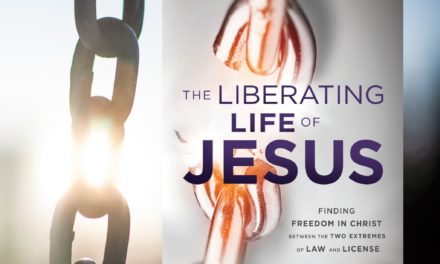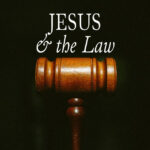Following last week’s article, Condemning the Innocent, a request was made for modern examples. Several come quickly to mind, but perhaps these would open a can of worms and obscure the point. However, there is a modern example that clearly is rooted in the text, “One man esteemeth one day above another: another esteemeth every day alike. Let every man be fully persuaded in his own mind. He that regardeth the day, regardeth it unto the Lord; and he that regardeth not the day, to the Lord he doth not regard it.” (Rom. 14:5-6). There are some who believe it is wrong to celebrate Christmas, especially the decorating and lighting of trees. They have their stated reasons. They abstain to the Lord. Others believe Christmas ought to be celebrated with all it’s decorative grandeur. They too have their reasons and participate to the Lord.
On issues like this where the Bible isn’t absolutely clear, the key is to let every man be fully persuaded in his own mind. The problem here is not a given position; it lies in considering any other position to be wrong. Agreeing with one position does not grant the right to disparage the other. When this happens, the innocent are condemned.
Where the Bible is not absolutely clear and debate ensues (and clear matters are not debated among those that respect biblical authority), then each one must be persuaded by the Spirit, embrace what the Spirit leads to on an individual basis, and give latitude for others to do the same.
There is another level of condemning the innocent, but listing such examples risks opening a can of worms. Suffice it to say traditions can be helpful, but taken too far, they can become harmful. Traditions should never be put on or above the level of God’s words. Jesus said, “Full well ye reject the commandment of God, that ye may keep your own tradition” (Mark 7:9). “Your own tradition” goes beyond God’s words. When this is the case, the innocent inevitably will be condemned.
Where God says “only” on a given matter, we must agree. But when we say “only” where God doesn’t, we end up condemning the innocent.

John Van Gelderen
Post Author












“Where the Bible is not absolutely clear and debate ensues (and clear matters are not debated among those that respect biblical authority), then each one must be persuaded by the Spirit, embrace what the Spirit leads to on an individual basis, and give latitude for others to do the same.“ Just to be clear, are you implying that any issue where there is debate amongst good men is a liberty issue and everyone just needs to be persuaded in their own mind? Alcohol (as an example) is debated amongst Christians. Both sides would claim to respect biblical authority. Your statement… Read more »
Thanks for your response. The emphasis of the article is the danger of going beyond what the Bible says with “your own tradition.” This practice condemns the innocent. That was the main point. Perhaps I should have added more explanation about the debatable. Not every matter that is initially debated among those with a heart for biblical authority is a “liberty” issue. Sometimes with a little elbow grease in Bible study, clarity as to the explicit meaning of the text comes into view thus ending the debate. But that is far different than deductions that go several steps beyond explicit… Read more »
With your contributor Paul, I too lifted an eyebrow of doubt at the parenthetical, “clear matters are not debated among those that respect biblical authority.” If the parties truly respect Biblical authority, then debate can help produce “iron sharpening iron.” The benefit of such debate can be short-circuited on one side by labeling a less strict position as “liberal,” and on the other side by labeling a more strict position as “legalism” (both terms being misused). As we “let the Spirit lead” on such matters, I believe we will fall not only in line with Him, but also more and… Read more »
Thanks Marc, my comment above addresses the debatable phrase. I may say more in the next article. Thanks for your interest.
Thank you for this excellent explanation! Over the last few years in our Bible study we have come across several passages where we were reading our modern cultural context onto them in order to be dogmatic about things, but in reality we were saying “only” where God wasn’t! It has taken some serious Bible study into the original languages and full context of the passage to unpack where we were reading in our traditions. Reading these articles has been an encouragement! Thank you for this helpful perspective!